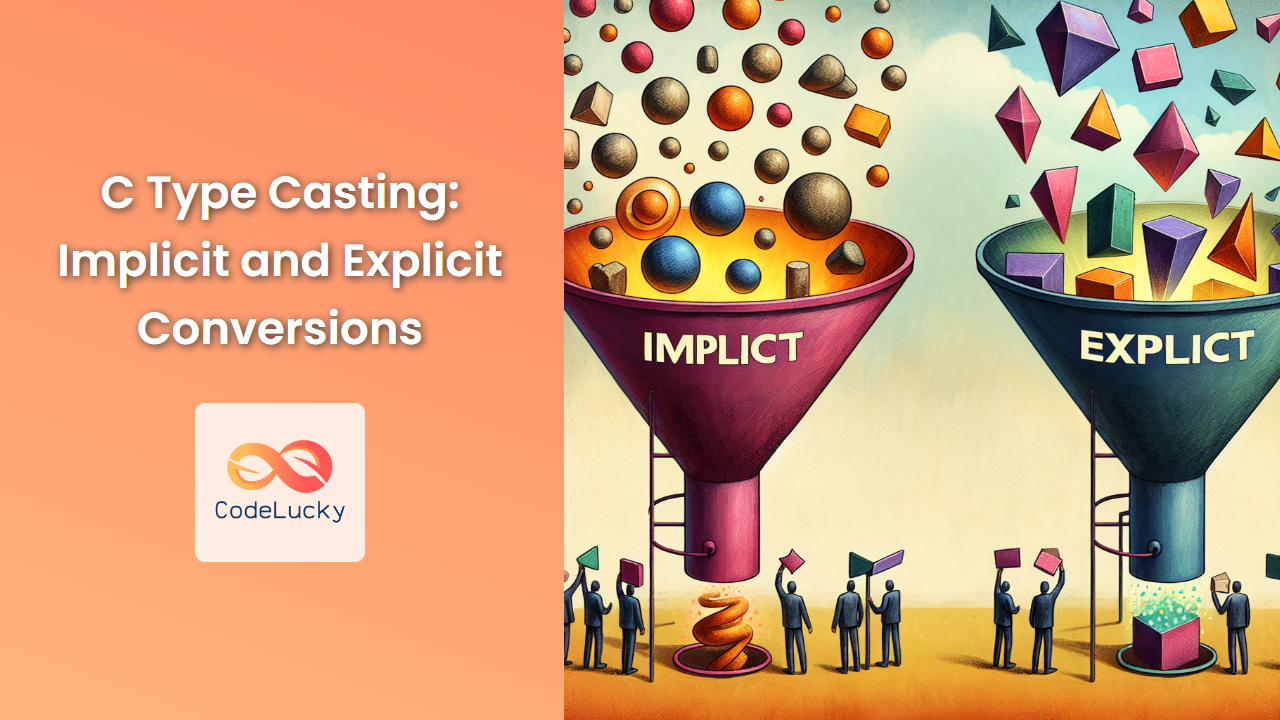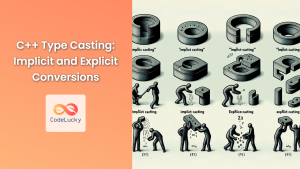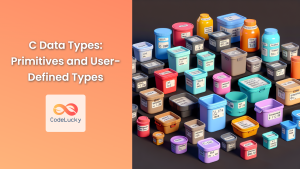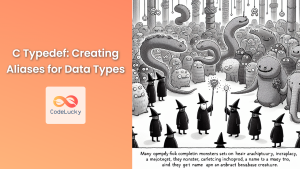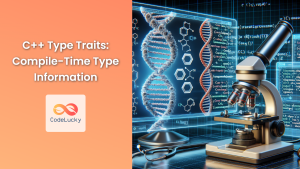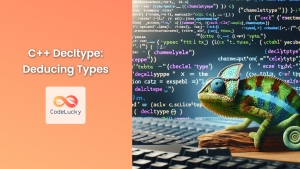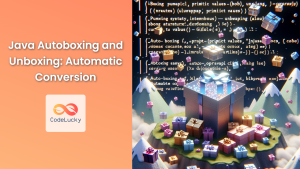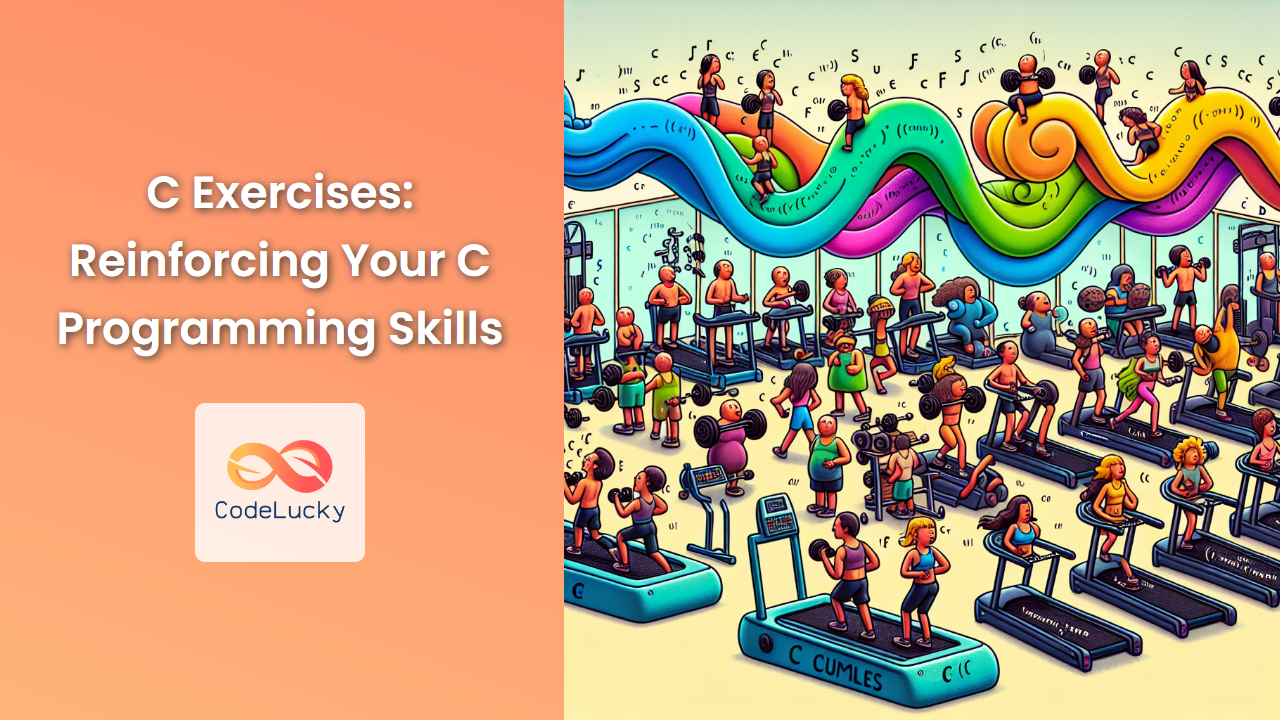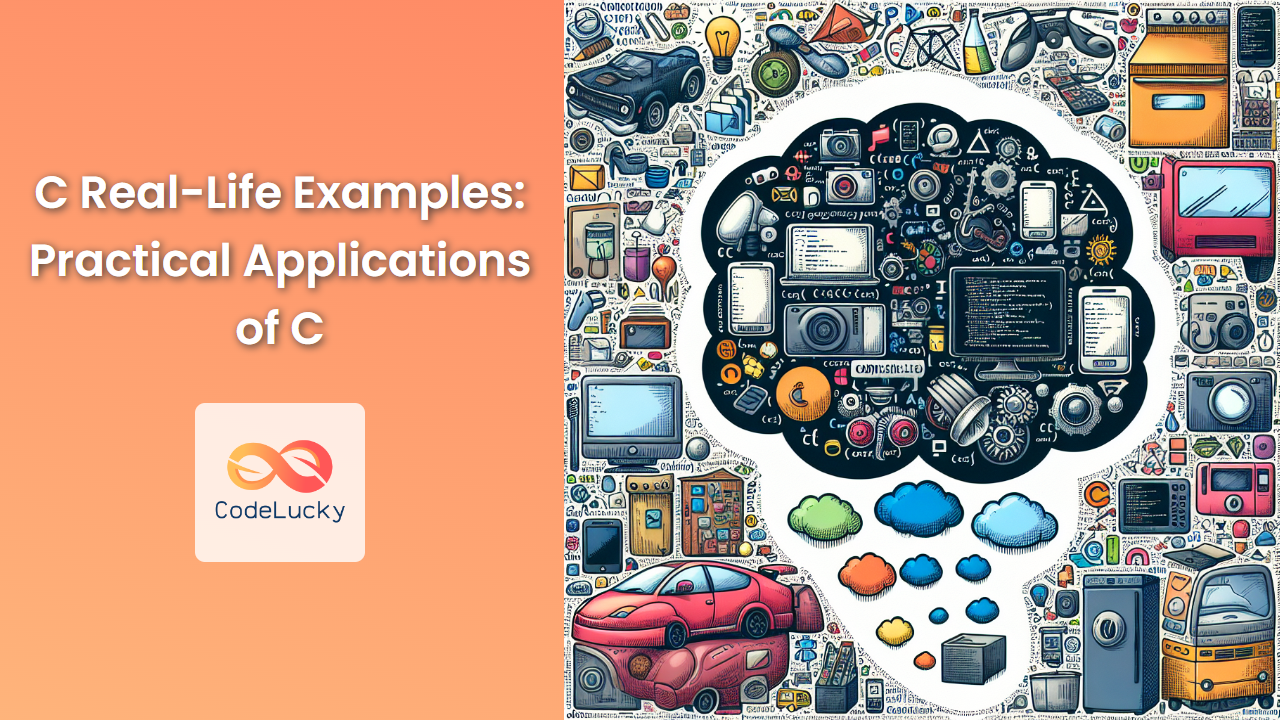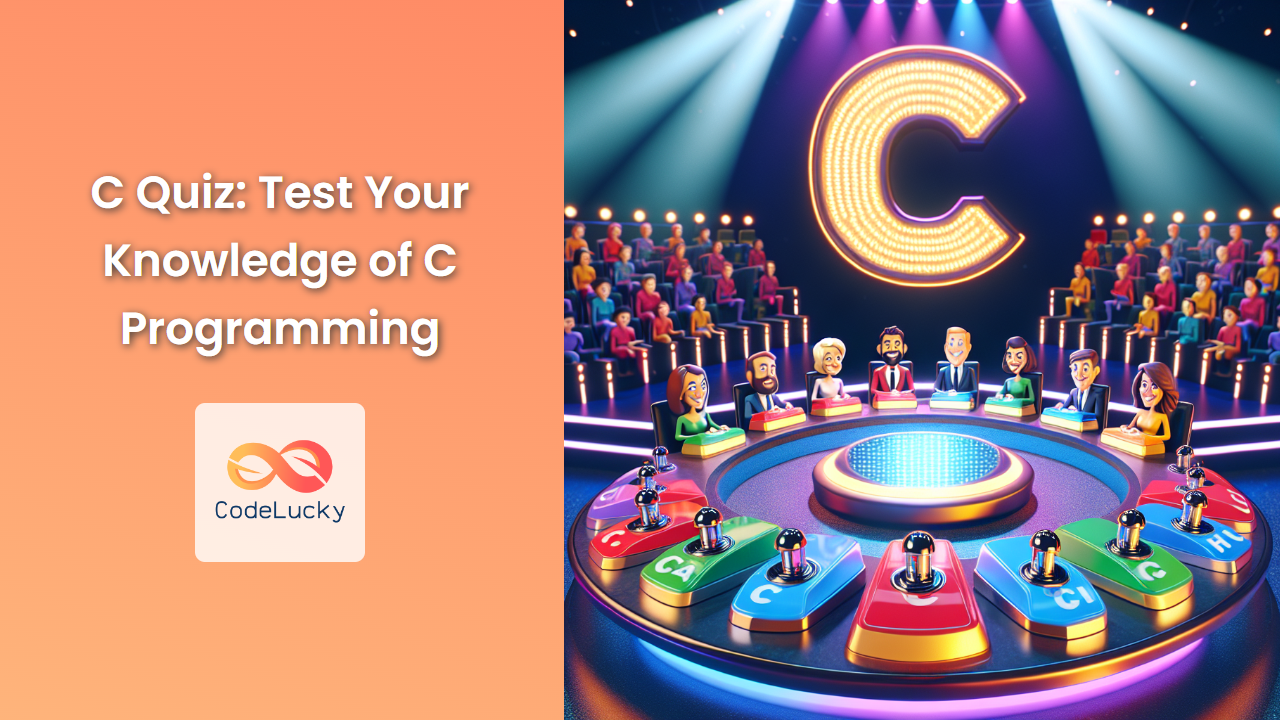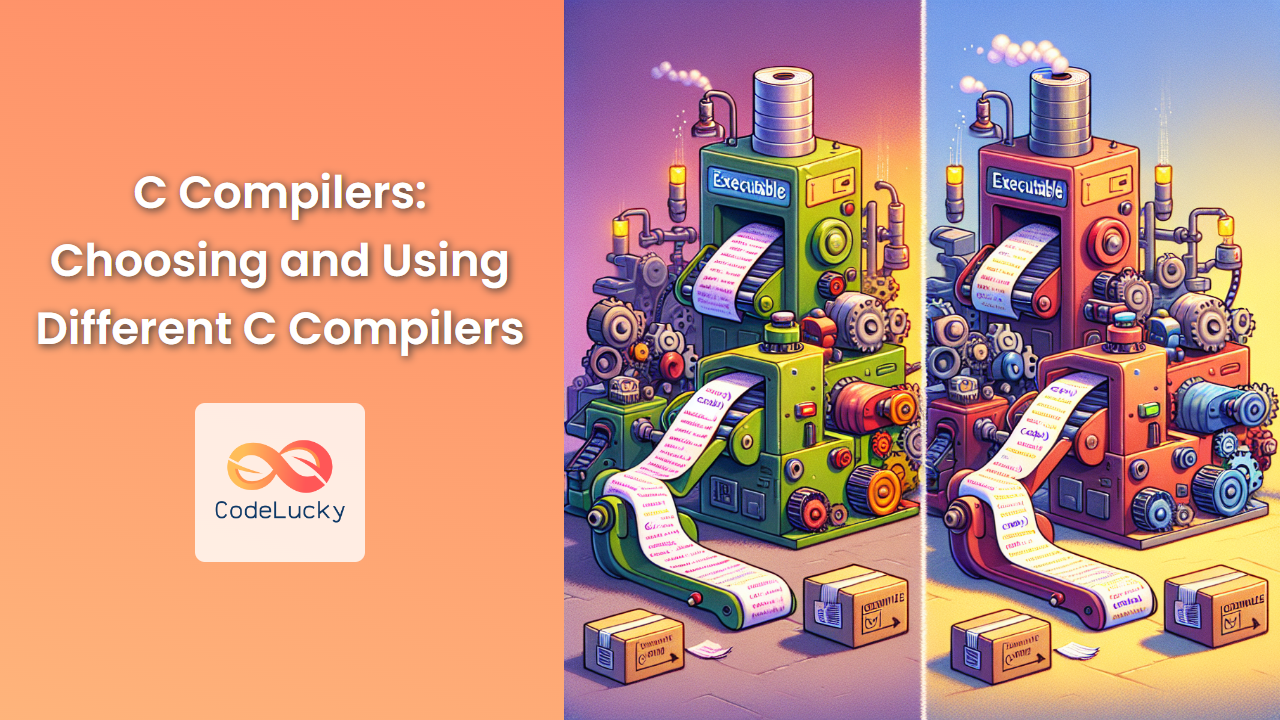In the world of C programming, type casting is a powerful tool that allows developers to convert data from one type to another. This process is essential for maintaining data integrity, optimizing memory usage, and ensuring compatibility between different parts of a program. In this comprehensive guide, we'll dive deep into the intricacies of type casting in C, exploring both implicit and explicit conversions with practical examples and real-world applications.
Understanding Type Casting in C
Type casting in C refers to the process of converting a value from one data type to another. This conversion can happen automatically (implicit casting) or be explicitly specified by the programmer (explicit casting). Let's break down these two types of conversions and explore their nuances.
Implicit Type Casting (Automatic Type Conversion)
Implicit type casting, also known as automatic type conversion, occurs when the compiler automatically converts one data type to another without any explicit instruction from the programmer. This typically happens when:
- Different data types are mixed in an expression
- A value is assigned to a variable of a different data type
Let's look at some examples to understand implicit type casting better:
#include <stdio.h>
int main() {
int integer_num = 10;
float float_num = 3.14;
// Implicit casting in arithmetic operation
float result = integer_num + float_num;
printf("Result of int + float: %f\n", result);
// Implicit casting in assignment
int truncated = float_num;
printf("Truncated float to int: %d\n", truncated);
return 0;
}
Output:
Result of int + float: 13.140000
Truncated float to int: 3
In this example, we see two instances of implicit type casting:
- When adding
integer_num(int) andfloat_num(float), theinteger_numis automatically converted to a float before the addition. - When assigning
float_numtotruncated(int), the float value is automatically truncated to an integer.
🔍 Note: In implicit casting, the conversion always goes from a "smaller" type to a "larger" type to prevent data loss. The hierarchy is generally:
char → short int → int → long int → float → double → long double
Explicit Type Casting
Explicit type casting, also known as type conversion, is when the programmer manually specifies the type conversion. This is done using the cast operator, which has the following syntax:
(type_name) expression
Let's look at some examples of explicit type casting:
#include <stdio.h>
int main() {
int num1 = 17, num2 = 5;
float result;
// Without explicit casting
result = num1 / num2;
printf("Result without casting: %f\n", result);
// With explicit casting
result = (float)num1 / num2;
printf("Result with casting: %f\n", result);
// Casting in complex expressions
int x = 10, y = 3;
float z = 7.5;
result = (float)(x + y) / z;
printf("Complex casting result: %f\n", result);
return 0;
}
Output:
Result without casting: 3.000000
Result with casting: 3.400000
Complex casting result: 1.733333
In this example:
- Without casting,
num1 / num2performs integer division, resulting in 3. - With casting,
(float)num1 / num2convertsnum1to a float before division, giving the correct result of 3.4. - In the complex expression,
(x + y)is first evaluated as an integer, then cast to a float before division byz.
Common Type Casting Scenarios
Let's explore some common scenarios where type casting is particularly useful:
1. Preserving Precision in Division
#include <stdio.h>
int main() {
int numerator = 22;
int denominator = 7;
// Without casting
float result1 = numerator / denominator;
// With casting
float result2 = (float)numerator / denominator;
printf("Without casting: %f\n", result1);
printf("With casting: %f\n", result2);
return 0;
}
Output:
Without casting: 3.000000
With casting: 3.142857
Here, casting helps preserve the precision of the division operation.
2. Working with Different Integer Types
#include <stdio.h>
int main() {
short int short_num = 32767; // Maximum value for short int
int int_num;
// Implicit casting (safe)
int_num = short_num;
printf("Short to Int (implicit): %d\n", int_num);
int_num = 2147483647; // Maximum value for int
// Explicit casting (potential data loss)
short_num = (short int)int_num;
printf("Int to Short (explicit): %d\n", short_num);
return 0;
}
Output:
Short to Int (implicit): 32767
Int to Short (explicit): -1
This example demonstrates safe implicit casting from short to int, and potentially unsafe explicit casting from int to short.
3. Character and Integer Conversions
#include <stdio.h>
int main() {
char ch = 'A';
int ascii_value;
// Implicit casting from char to int
ascii_value = ch;
printf("ASCII value of %c: %d\n", ch, ascii_value);
// Explicit casting from int to char
int num = 66;
char character = (char)num;
printf("Character for ASCII %d: %c\n", num, character);
return 0;
}
Output:
ASCII value of A: 65
Character for ASCII 66: B
This example shows how characters can be implicitly cast to their ASCII values, and how integers can be explicitly cast to characters.
Advanced Type Casting Techniques
Let's delve into some more advanced type casting scenarios that C programmers often encounter:
1. Pointer Type Casting
Pointer type casting is a powerful technique that allows you to change the type of the pointer, affecting how the data it points to is interpreted.
#include <stdio.h>
int main() {
int num = 0x12345678;
char *cp = (char *)#
printf("Integer value: 0x%X\n", num);
for (int i = 0; i < sizeof(int); i++) {
printf("Byte %d: 0x%X\n", i, *(cp + i) & 0xFF);
}
return 0;
}
Output (on a little-endian system):
Integer value: 0x12345678
Byte 0: 0x78
Byte 1: 0x56
Byte 2: 0x34
Byte 3: 0x12
In this example, we cast an integer pointer to a char pointer, allowing us to access individual bytes of the integer.
2. Function Pointer Casting
Function pointers can be cast to different types, enabling flexible callback mechanisms:
#include <stdio.h>
void print_int(int x) {
printf("Integer: %d\n", x);
}
void print_float(float x) {
printf("Float: %f\n", x);
}
typedef void (*PrintFunc)(void *);
void print_number(void *num, PrintFunc func) {
func(num);
}
int main() {
int i = 42;
float f = 3.14;
print_number(&i, (PrintFunc)print_int);
print_number(&f, (PrintFunc)print_float);
return 0;
}
Output:
Integer: 42
Float: 3.140000
Here, we cast specific print functions to a generic function pointer type, allowing for a flexible printing mechanism.
3. Dealing with Strict Aliasing
Strict aliasing rules in C can sometimes be circumvented using type punning through unions:
#include <stdio.h>
union IntFloat {
int i;
float f;
};
int main() {
union IntFloat val;
val.f = 3.14;
printf("Float value: %f\n", val.f);
printf("Integer representation: 0x%X\n", val.i);
return 0;
}
Output:
Float value: 3.140000
Integer representation: x4048F5C3
This technique allows us to view the binary representation of a float as an integer without violating strict aliasing rules.
Best Practices and Potential Pitfalls
While type casting is a powerful tool, it should be used judiciously. Here are some best practices and potential pitfalls to keep in mind:
-
🚨 Avoid Narrowing Conversions: Converting from a larger type to a smaller type (e.g., long to int) can lead to data loss. Always check if the value fits within the range of the target type.
-
✅ Use Explicit Casts for Clarity: When performing potentially unsafe conversions, use explicit casts to make your intentions clear to other developers (and your future self).
-
🚨 Be Cautious with Floating-Point to Integer Conversions: These conversions can lead to unexpected results due to truncation. Consider using rounding functions when needed.
-
✅ Understand Implicit Conversion Rules: Familiarize yourself with C's implicit conversion rules to avoid unexpected behavior in complex expressions.
-
🚨 Avoid Casting Away
const: Casting awayconstqualifiers can lead to undefined behavior if the original object was indeed constant. -
✅ Use Appropriate Types: Instead of relying heavily on type casting, try to use appropriate types for your data from the start.
Conclusion
Type casting in C is a fundamental concept that every programmer should master. Whether it's implicit conversions happening behind the scenes or explicit casts that you control, understanding type casting is crucial for writing efficient, bug-free code.
We've explored various scenarios, from basic arithmetic operations to advanced pointer manipulations, demonstrating the versatility and power of type casting in C. Remember, with great power comes great responsibility – use type casting wisely, always considering the potential implications on your program's behavior and portability.
By following best practices and being aware of common pitfalls, you can leverage type casting to write more flexible and efficient C programs. Keep practicing with different scenarios, and soon, type casting will become a natural part of your C programming toolkit.

